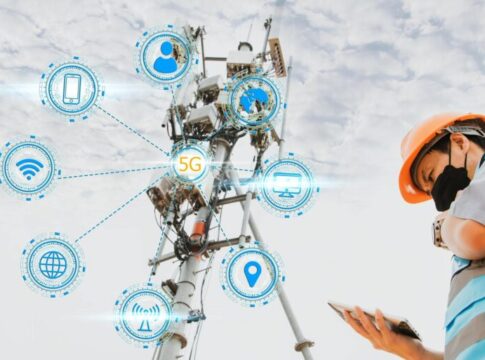Satellite communication has undergone significant advancements in recent years, revolutionizing global connectivity and enabling a wide range of applications. Here are some key advancements and benefits of satellite communication:
- Global Coverage: Satellites provide global coverage, reaching remote and underserved areas where terrestrial infrastructure is limited or nonexistent. They bridge the digital divide by extending communication services to regions that are difficult to reach through traditional means. Satellite communication enables connectivity in rural areas, maritime environments, and even in-flight connectivity on airplanes.
- Reliable and Resilient: Satellites offer a high level of reliability and resilience. They are less susceptible to natural disasters, physical infrastructure failures, and outages compared to terrestrial networks. Satellites can maintain connectivity during emergencies and serve as backup communication channels, ensuring uninterrupted connectivity in critical situations.
- Broadband Internet Access: Satellites play a crucial role in providing broadband internet access to areas without traditional terrestrial connectivity. High-throughput satellites (HTS) and constellations of low Earth orbit (LEO) satellites are being deployed to deliver high-speed internet access to homes, businesses, and communities globally. These advancements bridge the digital divide and enable economic and educational opportunities in underserved areas.
- Mobile Communication and IoT Connectivity: Satellites support mobile communication services, enabling voice and data connectivity in remote locations, at sea, and in aircraft. They also facilitate Internet of Things (IoT) connectivity, allowing for the seamless integration of sensors and devices in various sectors such as agriculture, transportation, and environmental monitoring. Satellites provide the necessary infrastructure for global IoT deployments.
- Broadcasting and Direct-to-Home (DTH) Services: Satellites are widely used for broadcasting television and radio signals. Direct-to-Home (DTH) satellite services deliver television programming directly to homes, providing a wide range of entertainment and educational content to viewers. Satellites enable efficient distribution of media content to a large audience, transcending geographical boundaries.
- Disaster Management and Emergency Communication: Satellites play a critical role in disaster management and emergency communication. They enable rapid deployment of communication networks in disaster-stricken areas, facilitating coordination, rescue efforts, and information dissemination. Satellite communication provides a lifeline during emergencies when terrestrial infrastructure is damaged or overwhelmed.
- Earth Observation and Remote Sensing: Satellites equipped with Earth observation sensors and remote sensing capabilities provide valuable data for various applications. They monitor weather patterns, track environmental changes, facilitate disaster management, support agriculture and forestry monitoring, and assist in urban planning. Satellite-based remote sensing enables better understanding and management of Earth’s resources.
- Scientific Research and Exploration: Satellites are instrumental in scientific research and exploration. They support space missions, study celestial bodies, and enable communication between spacecraft and ground control. Satellites gather data on the Earth’s atmosphere, climate, and space phenomena, contributing to scientific advancements and expanding our knowledge of the universe.
- Mobile Satellites and Connectivity on the Move: Satellites equipped with tracking antennas and phased array antennas enable connectivity on moving platforms, such as trains, ships, and vehicles. These mobile satellite solutions provide communication services in remote areas, during expeditions, and in transportation scenarios where terrestrial networks may be unavailable or unreliable.
- Military and Defense Applications: Satellites play a vital role in military and defense operations. They provide secure and resilient communication channels for military forces worldwide. Satellites support reconnaissance, surveillance, intelligence gathering, and global coordination of military operations.
In summary, advancements in satellite communication have transformed global connectivity, providing reliable and resilient communication services, broadband internet access, mobile communication, broadcasting, disaster management support, scientific research capabilities, and numerous other applications. Satellites play a crucial role in bridging the digital divide, connecting remote areas, and enabling a wide range of services that improve lives, drive economic development, and support critical operations globally.








